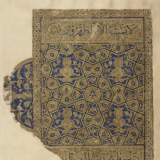History of surah Sheba

Name
It was called "Surat Saba'" because God Almighty mentions in it the story of Saba' who were the kings of Yemen and whose people lived in grace, prosperity, happiness and bliss. Their dwellings are gardens and gardens, but when they did not believe in grace, God destroyed them with a flood and made them a lesson for those who heed them.
Period of Revelation
Sura Saba was revealed in Mecca Al-Mukarrama between the eleventh and twelfth years of the Hijra, in the last period of the Muslims' life in Mecca Al-Mukarrama, where it was revealed after Surat Luqman, and the number of its verses is fifty-four. The themes of the sura revolve around the Islamic faith, such as the monotheism of God Almighty, belief in revelation, confirmation of the resurrection, and reward. The sura also contains a correction of some values related to faith, the most important of which is the statement about judgment and the final decision of reward with God Almighty: it is faith and good deeds, not money and children, and that there is no protection from God's wrath, and that there is no intercession except by His permission, the Exalted.
Theme and topics
The general Theme and topics contained in the sura are the main themes of faith: the monotheism of God, the belief in revelation, and the belief in resurrection. The details of the goals contained in the sura are as follows:
Abolition of the rules of polytheism, the greatest of which is the association of gods with God, and denial of the resurrection. Thus, the Almighty began the sura with the proof of his exclusivity, the Almighty, in divinity, denying the divinity of idols and denying that idols are intercessors for their worshippers.
The main focus in the sura is on the issue of resurrection and retribution.
The proof that God encompasses the knowledge of what is in the heavens and on earth, so that what He communicates is reality, and that includes the proof of resurrection and retribution.
A proof of the sincerity of the Prophet, may God bless him and grant him peace, in what he narrated, and the truthfulness of what the Quran contained, and that the Quran was witnessed by the scholars of Jewish and Christians.
The duty of the argument against the deniers of prophecy.
Explanation of the miracles of David and Solomon, peace be upon them.